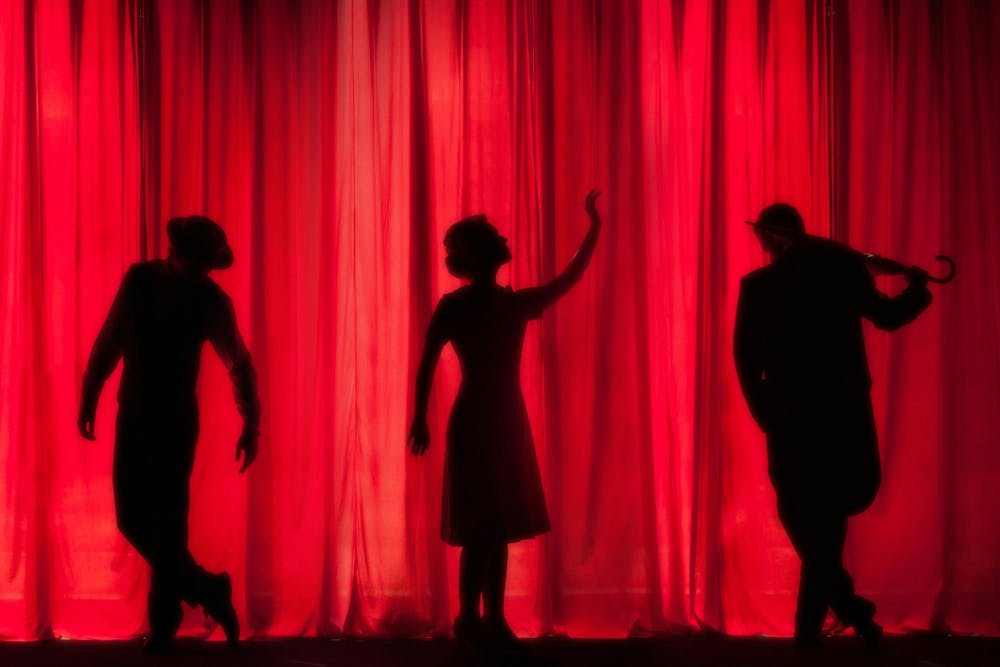Pam Wojcik meets with about 16 students in DeBartolo Hall to talk about 'camp,' coming together every Wednesday of this quarter. Wojcik, chair of the film, television and theatre (FTT) department, is teaching a course called “Camp: Performance & Spectators,” is a one-credit, upper level course offered through the FTT department.
Camp is a type of aesthetic that was famously defined by Susan Sontag in her 1964 essay entitled “Notes on Camp.” In the essay, Sontag wrote that the “essence of camp is its love of the unnatural — of artifice and exaggeration.” Wojcik added that theatricality, “performativity,” comedy and adoration are other important aspects of camp.
“With camp, there is a kind of investment, right? You love the thing, even as you find it ridiculous,” Wojcik said. “You identify with it, even as you find it ridiculous, or over the top, or histrionic or all those things.”
Claire Schaffler, a senior studying, said she was first introduced to camp in the queer theory section of her “Critical Approaches” class, also taught by Wocjik. She said she did some of her own research on camp for a paper she wrote in that class, but didn’t know that much at the time. Schaffler said this course has helped her develop a much clearer understanding of the topic.
“I’ve already learned so much more because I knew what [camp] was abstractly, but I couldn’t put it into words before taking this class,” she said.
Many of Wojick’s other students also say they had a limited understanding of camp. On the first day of the course, Wojcik asked her students why they were taking the course and if they knew anything about camp. For many of her students, the 2019 camp-themed Met Gala was their first introduction to the concept.
“I feel like I use it in jargon, like, ‘Oh my god, that’s so camp.’ But what does it mean?” said senior Paulina Rey, another student in Wojcik’s class.
According to the course syllabus, the class is designed to examine camp through a variety of lenses. Each week, students are assigned a film and two readings, as well as recommended additional resources to explore these more subtopics in depth during in-class discussions.
On Wednesday, Wojcik’s students spent their 75 minutes watching clips of Judy Garland and learning about how both Garland herself and her performances are interpreted as camp.
“I have a lot of clips of Judy Garland, so if you’re a Judy fan, it’s a great day,” Wojcik said at the beginning of the class.
In addition to examining the performances of Garland, the students will explore gay male camp, feminist camp, lesbian camp, Black camp, the mainstreaming of camp and the meaning of camp in 2024.
Wojcik first became interested in camp during graduate school, and she was first introduced to the topic through feminist theory. During one of her classes, her line of questioning led to her dissertation topic: feminist camp.
Even though Wojcik’s expertise in camp dates back to her time in graduate school, this is the first time Wojcik is offering the course. The genesis of the topic was a joint effort between Wocjik, Schaffler and Rey. As FTT majors, Scaffler and Rey took a few FTT fundamentals courses with Wojcik, and they both knew they wanted to take an upper level course with her after being unable to do so during the fall semester.
“We were like, ‘We want to take one final class with you like, we love being in class with you. Can you please teach an upper level?’” Rey said. “She was like, ‘Meet with me, come up with a topic and I'll teach one credit a hundred percent.”
After meeting with Wojcik and throwing out different ideas for a one-credit course, the trio settled on camp.
Now that she has begun her time teaching, she is so pleased with the course and student engagement that she is thinking of turning it into a three-credit class.
“I also think the culture of Notre Dame has shifted a lot. I don’t know that I would have had students for a full course on camp when I got here in 1998,” she said. “So you know, the fact that 16 or so students showed up for one credit class is great.”










